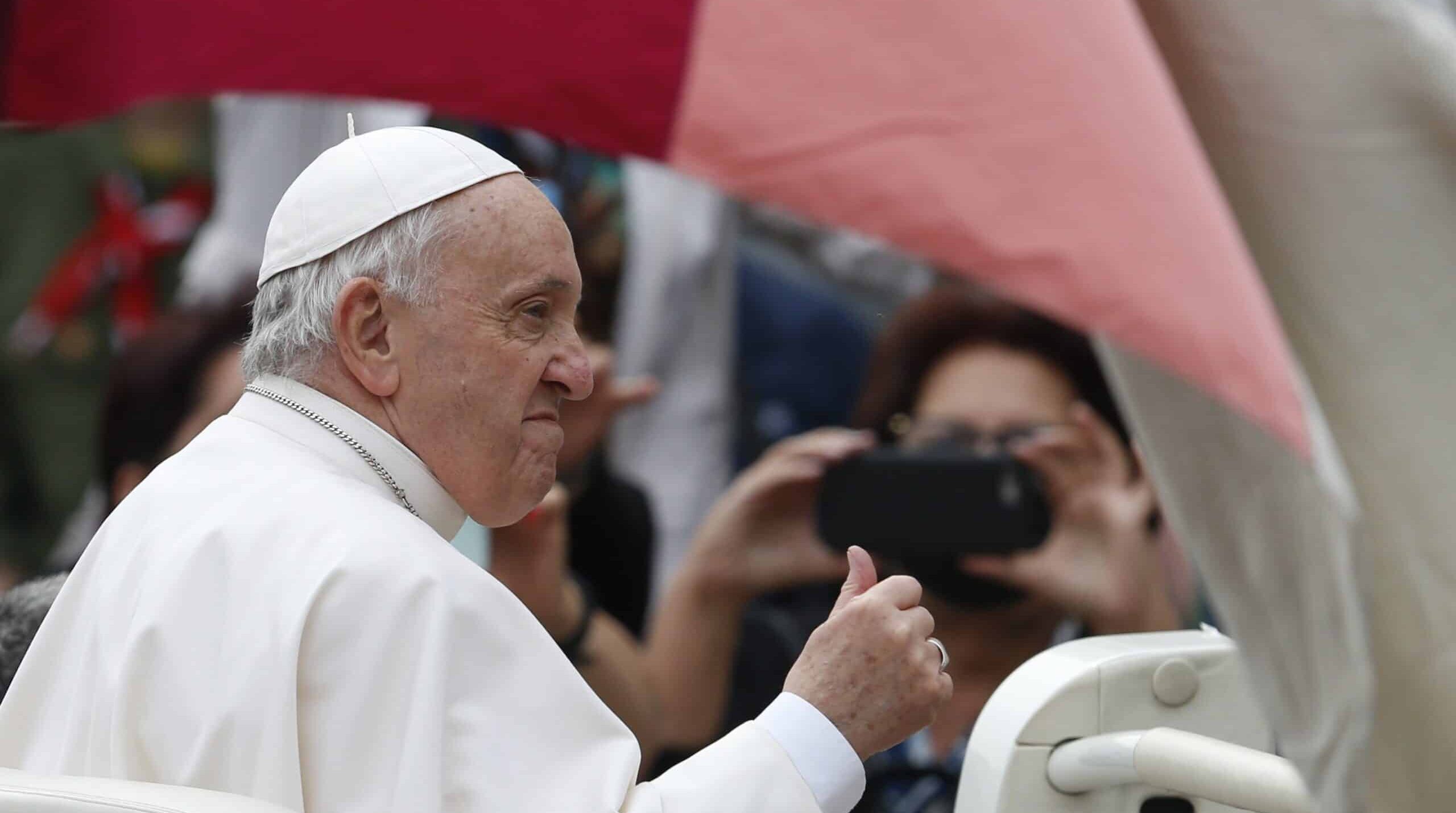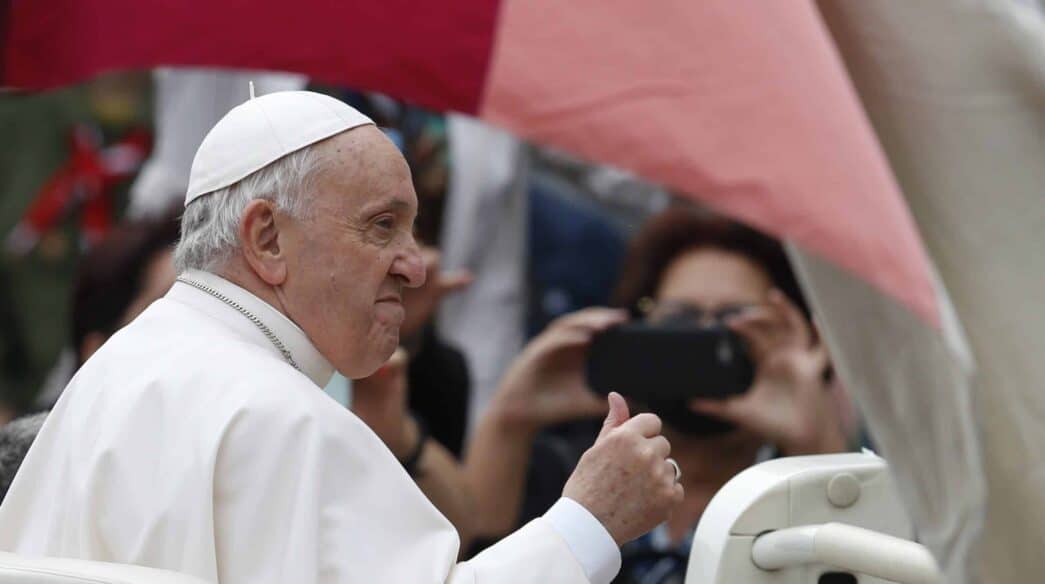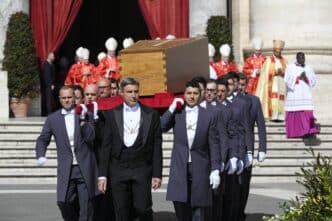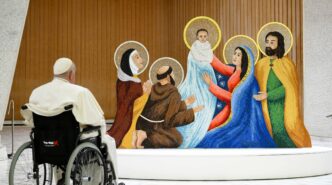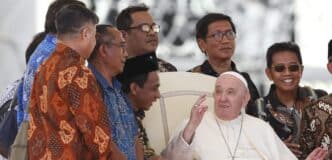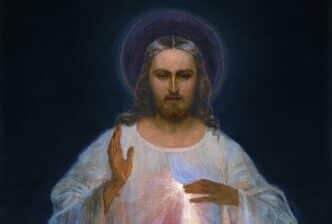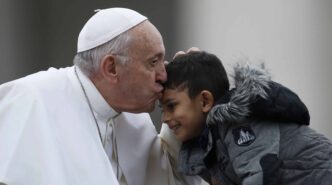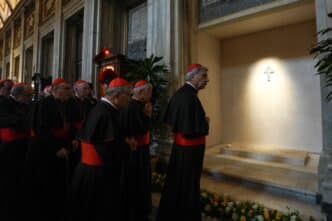I was serving as provincial superior of the Chicago-Detroit Jesuit Province the day Pope Francis was elected. When the white smoke billowed just after lunch in the Midwest, our team ran to an office TV to see who the new Holy Father would be.
When Cardinal Jean-Louis Tauran proclaimed the familiar Latin words, “Annuntio vobis gaudium magnum: Habemus papam,” we cheered. But when he announced Jorge Mario Bergoglio as the next vicar of Christ, we were nearly silent in shock. None of us had ever imagined that a member of the Society of Jesus would become Pope. The Church had not elected a pope from a religious order since 1831, when the College of Cardinals chose Pope Gregory XVI, a Camaldolese monk. It was hard to fathom in our office that afternoon that we were suddenly living in a historic moment.
Within minutes, my cellphone was buzzing, and our provincial offices began receiving media requests. After speaking with some reporters, I walked to Chicago’s Holy Name Cathedral because the archdiocese would have a Mass for the new pope. In the sacristy, I introduced myself to Bishop Raymond Goedert, who was celebrating the Mass. When I said I was the Jesuit provincial, he replied, “Good, you can preach.” After catching my breath, I reviewed the readings and prayed for the grace to preach well.
I wondered if those assembled in the cathedral were curious about the new pope’s name. Would he have chosen the name of a Jesuit saint — St. Francis Xavier, perhaps? I then remembered “The Autobiography of St. Ignatius Loyola,” in which he describes his conversion and the great saints he desired to emulate. Multiple times in his autobiography, St. Ignatius writes, “What would Francis and Dominic have done?” I preached with great confidence that Pope Francis had chosen the name of St. Francis of Assisi. Although a Jesuit, his papacy would be inspired by the 13th-century Italian friar who founded the Franciscans.
Leading with love
From the outset of his papacy, and in the spirit of his namesake, Pope Francis wanted a Church that would go to the peripheries, a Church that looked out to the world and not one that focused inwardly on itself. He used some powerful metaphors to illustrate his vision. He once likened the Church to a “field hospital,” where we must prioritize first care for those in the greatest physical or spiritual need. He once encouraged priests to have “the smell of the sheep,” noting the importance of proximity to the people we have been called to serve. I remember the first time that I met him after Mass at the Casa Santa Marta in 2014; I deliberately did not shine my shoes. Pope Francis preferred priests whose scuffed shoes ventured off the well-paved road.
As a fellow vowed religious, I was always consoled by the way the Holy Father highlighted the charism of religious life in the Catholic Church. And I could see ways in which his Jesuit formation shaped Pope Francis’ leadership and vision. When Pope Paul III approved the Society of Jesus in 1540, we were established to “strive for the progress of souls in Christian life and doctrine, and for the propagation of the faith by ministries of word, spiritual exercises and acts of charity.” While none of these works are unique to the Jesuits, they would come to define much of Pope Francis’ papacy over the past 12 years. He wanted to bring the truth of the Gospel to light by motivating our deepest human desires. He always placed individuals ahead of ideologies, and he valued humility over pride. Long after people remember what Pope Francis taught them, they will remember how he treated them. He led with love and trusted the Lord to do the rest.
In his final encyclical, Dilexit Nos (“He Loved Us”), Pope Francis meditates on the devotion to the Sacred Heart of Jesus. He notes the importance of the heart as a symbol to express the love of Jesus Christ. In this encyclical, he turns to the Spiritual Exercises of St. Ignatius Loyola, a text which Pope Benedict XVI once declared was Loyola’s gift to the entire Church. Near the end of the Spiritual Exercises, we find the “Contemplation to attain divine love.” This is the meditation where retreatants offer their “memory, understanding and will” to the heart of Christ. Pope Francis reminds us that this contemplation “is not the fruit of our understanding and effort but is to be implored as a gift.”
A spirit of poverty
We know that Pope Francis offered his entire memory, understanding and will to the heart of Jesus Christ. He also recognized that his vocation to the Church was a gift from God. In a world where career and ambition can define us, he set a higher standard. He valued the social ministry of the Church, but he never viewed it as an nongovernmental organization. He treasured education and learning but once contrasted the intellectual heft of the Gregorian University in Rome with the wisdom of his grandmother. And though he loved the ministers of the Church, he never let us rest on our laurels — he always pushed for more. While this drew some criticism during his papacy, it was also illustrative of his priestly vocation. He dedicated his memory, understanding and will to the heart of Christ.
In the 10th century, the Cistercian Doctor of the Church, St. Bernard of Clairvaux, shared this about religious orders: “I admire them all. I belong to one of them by observance, but to all of them by charity. We all need one another: The spiritual good which I do not own and possess, I receive from others.” I believe that Pope Francis lived this tenet well. He certainly relied on his Jesuit formation to govern the universal Church. But he knew the limits of the Society of Jesus. The Archdiocese of Buenos Aires may have set the context for his teaching and preaching, but he embraced the larger world with great gusto and strength. He mostly spoke in his native Spanish and familial Italian, but he courageously addressed the entire U.S. Congress in English at 79 years of age. He knew what he did not “own and possess” and what he needed from others. He never hesitated to receive the spiritual goods of the Church.
When he was elected pope, the news networks declared him “the first from Latin America, the first Jesuit, the first named Francis.” These were helpful distinctions, but they did not define his papacy. As the vicar of Christ, he continued the Petrine ministry, a ministry which will live on in his successor.

